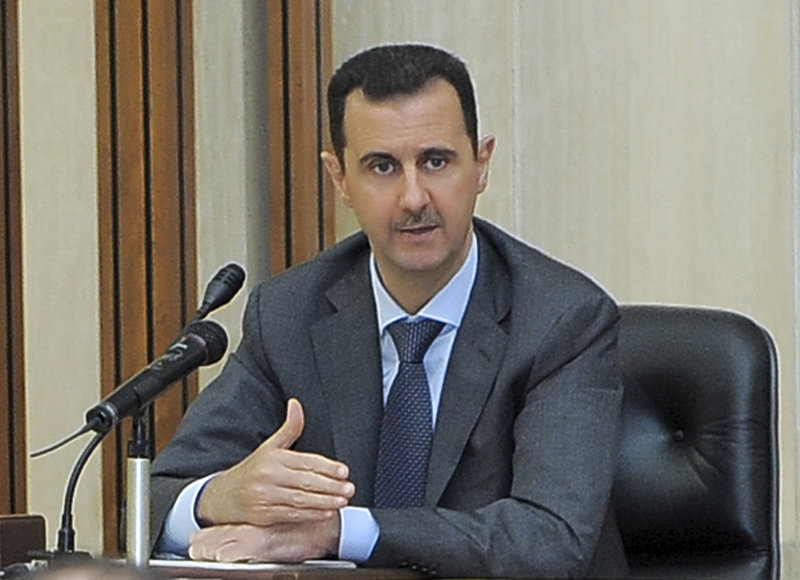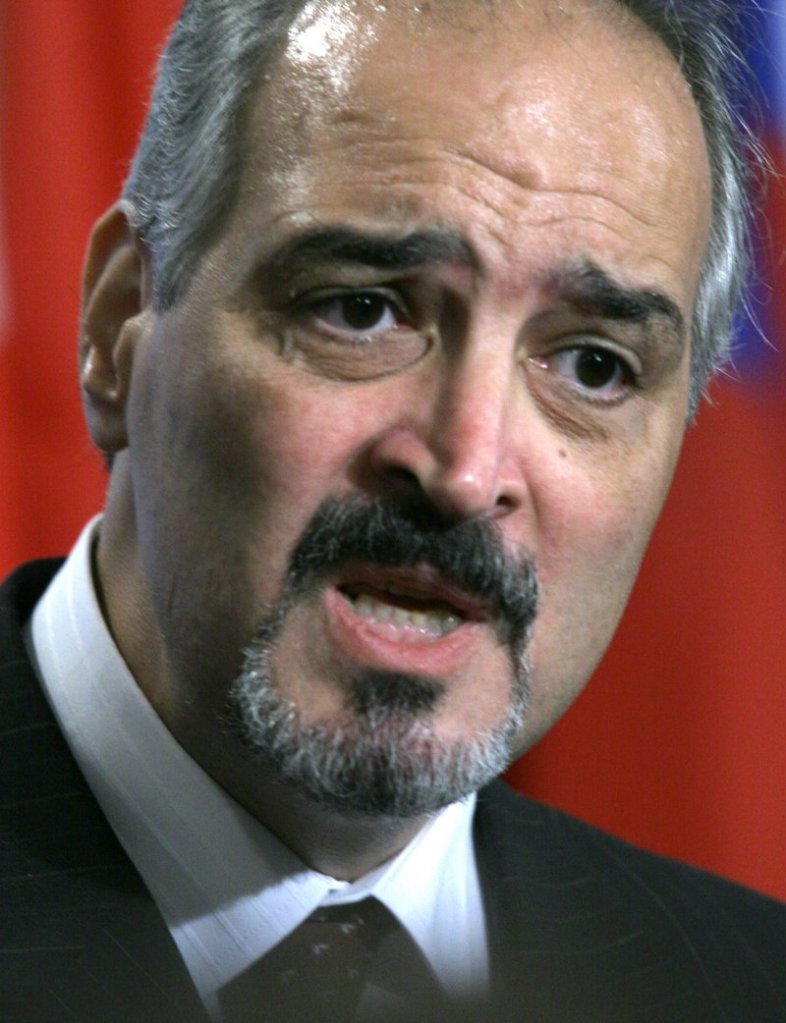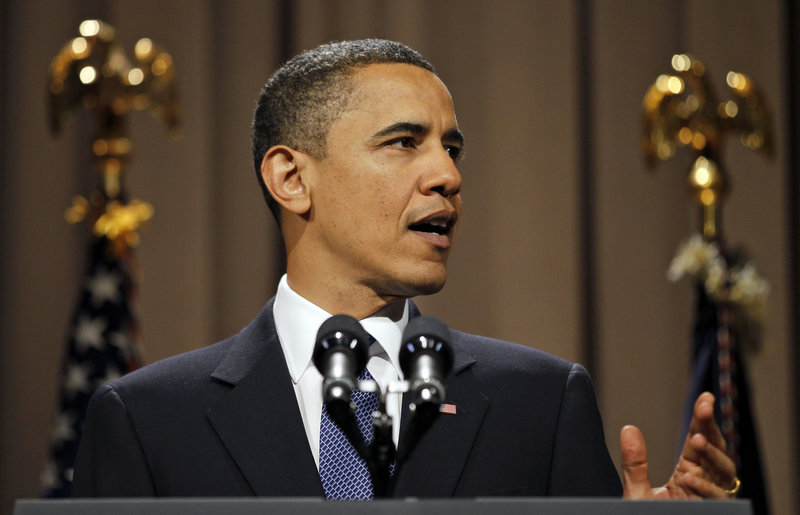WASHINGTON – Executing a global squeeze play, the United States and its European allies on Thursday demanded an end to four decades of brutal family dictatorship in Syria and underscored the tough talk with new sanctions on President Bashar Assad’s government.
The unified stance isolates Assad further as he presses a military campaign against major demonstrations. But the diplomacy left many questions unanswered, including how the demand for Assad’s ouster can be backed up in the absence of any appetite for military intervention, and who inside the Syrian government or among the country’s fragmented opposition might take his place.
The messages from Washington, London, Paris, Berlin and Brussels coincided with a U.N. report recommending that Syria be referred to the International Criminal Court for investigation of possible crimes against humanity, including summary executions, torturing prisoners and targeting children in the crackdown on demonstrations.
Much of Syria was quiet Thursday, although activists reported intense shooting around noon in the flashpoint city of Latakia.
Rights groups say Assad’s forces have killed nearly 2,000 people since mid-March. The military assault on civilians has escalated since Ramadan began, with security forces killing hundreds and detaining thousands.
Activists said security forces killed 18 people across the country on Wednesday, the same day Assad assured U.N. Secretary-General Ban Ki-moon that military and police operations had stopped.
AMBASSADOR LASHES OUT
Syria’s U.N. Ambassador Bashar Ja’afari accused the U.S. of waging a “humanitarian and diplomatic war” against his country in order to instigate further violence by sending “the wrong message to the terrorist armed groups that they are under American and Western protection.”
In Thursday’s coordinated statements, President Barack Obama and the leaders of Britain, France, Germany, Canada and the European Union called for Assad to resign, saying his repression of demonstrations inspired by this spring’s Arab uprisings made him unfit to lead. The new effort signals the end of the world’s thin patience for Assad, once viewed as a Western-looking pragmatist who might expand freedoms at home and help achieve an Arab peace deal with Israel.
The resignation calls were the first explicit demands from the U.S. and its allies for Assad to step down, although condemnation of his actions had been growing for weeks.
Syria presented a different case than other Muslim nations swept by unrest this year. The United States used leverage from its billions of dollars in military aid to gradually ratchet up pressure on Egyptian dictator Hosni Mubarak to step down, and called early on for the ouster of Libyan strongman Moammar Gadhafi.
LITTLE DIRECT INFLUENCE
But Washington has very little direct influence on Syria, long a pariah state accused of sponsoring terrorism. Syria does have wider trade and other ties with Europe and the Arab world, which complicated the U.S. position, and with neighbor Iran. Iran remains one of the Assad regime’s few allies, although those bonds are not deep.
In a statement released by the White House, Obama said Assad had lost all credibility as a leader and had to go.
“His calls for dialogue and reform have rung hollow while he is imprisoning, torturing and slaughtering his own people,” Obama said. “We have consistently said that President Assad must lead a democratic transition or get out of the way. He has not led. For the sake of the Syrian people, the time has come for President Assad to step aside.”
British Prime Minister David Cameron, French President Nicolas Sarkozy and German Chancellor Angela Merkel issued a joint statement saying that Assad should “leave power in the greater interests of Syria and the unity of his people.” European Union foreign policy chief Catherine Ashton and Canadian Prime Minister Stephen Harper also joined the chorus of condemnation.
In Geneva, a high-level U.N. human rights team said that Syria’s crackdown “may amount to crimes against humanity” and should be referred to the International Criminal Court.
The U.N. investigators say they had found “a pattern of human rights violations that constitutes widespread or systematic attacks against the civilian population.”
NEW SANCTIONS LOOM
Obama said Assad was wrong to think he could silence the voices of his people with repressive tactics similar to the ones his father, Hafez Assad, used to crush opponents in the 1980s. Obama signed an executive order that gives his administration authority to impose sweeping new sanctions on Syria intended to further isolate Assad.
The order immediately bans the import into the United States of any Syrian petroleum or petroleum products.
Syria is not a huge source of oil for the U.S., but if European allies join the effort, it could significantly affect one of the government’s top sources of revenue. Syrian crude oil exports go mostly to European countries.
Obama’s order also denies Syria access to the U.S. financial system, freezing all Syrian government assets that are subject to American jurisdiction. It prohibits any U.S. citizen from making transactions with Syria.
Send questions/comments to the editors.





Success. Please wait for the page to reload. If the page does not reload within 5 seconds, please refresh the page.
Enter your email and password to access comments.
Hi, to comment on stories you must . This profile is in addition to your subscription and website login.
Already have a commenting profile? .
Invalid username/password.
Please check your email to confirm and complete your registration.
Only subscribers are eligible to post comments. Please subscribe or login first for digital access. Here’s why.
Use the form below to reset your password. When you've submitted your account email, we will send an email with a reset code.